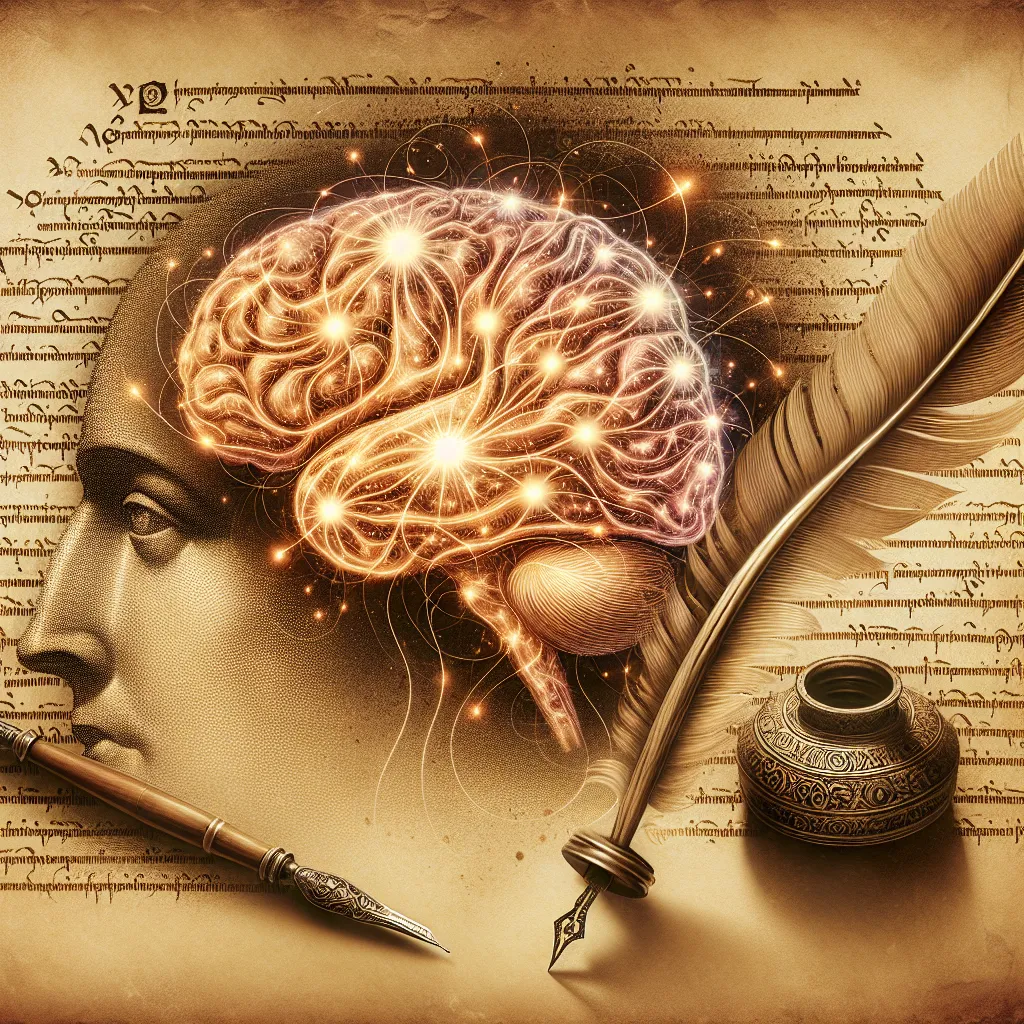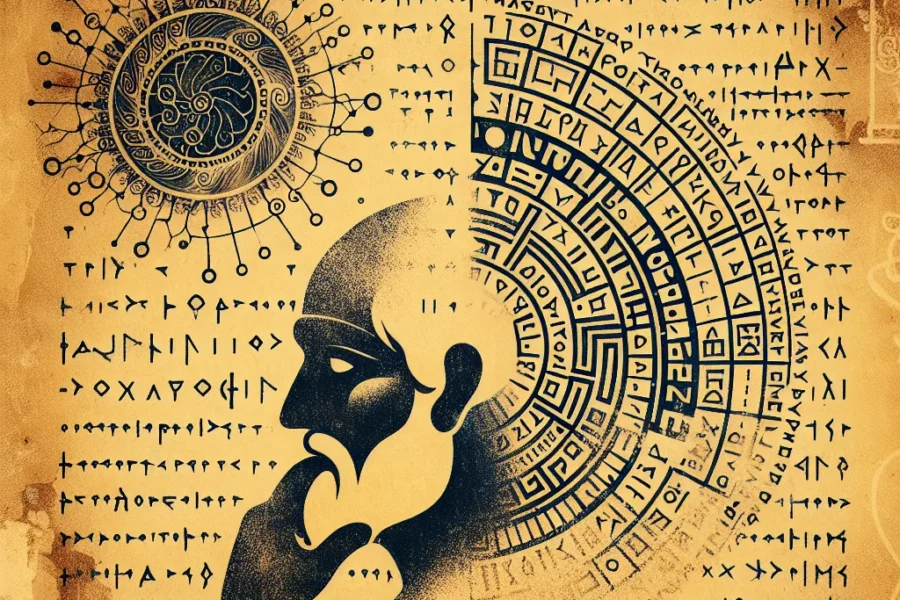Assessing historical figures’ intellectual capacities is always a fascinating endeavor, especially when it comes to someone as intellectually formidable as Dante Alighieri. As a luminary of the Italian literary canon, famous for his magnum opus “The Divine Comedy,” Dante has often been a subject of speculation regarding his intellectual prowess. But in an era devoid of standardized IQ tests, the question arises: What Was Dante Alighieri’s IQ Score?
If you are looking for legitimate IQ Tests which pass the entry bar for Mensa, see our IQ Tests.
To explore this query, we must dig into several factors that contribute to the understanding of Dante Alighieri’s intellectual capabilities. Though there is no direct method to assign an IQ score to a historical figure accurately, modern scholars and psychologists often employ retrospective assessments to estimate these metrics.
**The Genius of “The Divine Comedy”**
“The Divine Comedy” stands as a monumental achievement in world literature. Written between 1308 and 1320, this epic poem not only demonstrates Dante’s profound literary talent but also his deep understanding of theology, philosophy, politics, and classical literature. The structure of the poem is intricate, divided into three parts: Inferno, Purgatorio, and Paradiso, each exploring different facets of the human soul’s journey towards God.
The complexity and depth embedded in this work suggest a mind of extraordinary capability. Dante utilized various linguistic techniques, metaphors, and a rich tapestry of historical and mythological references to convey his vision. The intellectual rigor required to conceptualize and execute such an extensive and multifaceted narrative strongly hints at an exceptionally high level of intelligence.
**Educational Background**
Dante’s education was comprehensive for his time. He was tutored by Brunetto Latini, a highly respected scholar, who undoubtedly had a significant impact on him. In addition to Latin, Dante was well-versed in the vernacular Italian dialects, classical literature, and the burgeoning humanistic thoughts of the time. His knowledge of the classics, including works from Virgil, Homer, and Ovid, further exemplified his scholarly breadth.
Given his extensive education and the fact that he himself became a teacher and an influential figure in the literary and philosophical circles of his time, it is evident that Dante not only possessed but continually expanded his intellectual horizons.
**Political Acumen**
Dante was also actively involved in the politics of Florence, serving various roles including that of a prior, one of the highest executive officers in the city. His deep understanding of political mechanisms and his capacity to navigate the complex socio-political landscapes of his time add another layer to his intellectual profile.
His political treatise “De Monarchia” reflects contemplations on the nature of power, the relationship between the Church and the State, and the principles of governance. Such comprehensive and well-argued treatises provide further evidence of Dante’s sharpened intellect and nuanced thinking.
**Philosophical and Theological Insights**
Examining Dante’s work provides us with insights into his philosophical and theological inclinations. His “Convivio” (The Banquet) serves as a philosophical commentary and reflects Dante’s wide array of scholarly interests and his quest for knowledge. He draws extensively from Aristotle, Boethius, and Aquinas, integrating their thoughts into his own work.
His ability to synthesize complex philosophical and theological ideas and interpret them poetically not only shows intellectual dexterity but also creativity and deep understanding.
**Linguistic Prowess**
Dante’s decision to write “The Divine Comedy” in the vernacular instead of Latin could be perceived as revolutionary. It made his work accessible to a broader audience, democratizing knowledge and cultural capital. His contributions to the Italian language are monumental, as his works significantly influenced its evolution.
Compiling a comprehensive work such as “The Divine Comedy” in a language undergoing formation, while establishing norms that would shape its future, underscores his linguistic genius and foresight.
**Retrospective IQ Estimates**
Given the sheer range and scale of Dante Alighieri’s intellectual achievements, it is tempting to quantify his intelligence using modern measures like IQ scores. However, translating historical intellectual capabilities into a single number is neither straightforward nor entirely accurate. Nonetheless, scholars have made attempts to estimate the IQs of historical figures based on their accomplishments, writings, and the impact they had on their respective fields.
If we were to speculate conservatively, Dante’s presumed IQ would likely range between 160 and 180. This range places him in the realm of “genius” or “near-genius” territory by modern standards, similar to figures like Leonardo da Vinci or Albert Einstein. Estimates are often derived from assessments of their written works, the complexity of thoughts, and the breadth of impact.
**The Limitations of IQ Tests**
It’s crucial to point out that IQ tests measure specific cognitive skills such as mathematical reasoning, verbal ability, spatial visualization, and memory. They do not comprehensively capture creativity, emotional intelligence, or other dimensions of human intelligence. Dante’s work exhibited a blend of these diverse aspects, which might not be fully quantifiable by a standard IQ measure.
Therefore, while an IQ estimate can give us a broad idea of his cognitive capabilities, it doesn’t encapsulate the entirety of Dante’s intellectual and creative genius.
**Legacy and Continued Influence**
Dante Alighieri’s work has left an indelible mark on literature, philosophy, and theology, influencing countless generations after him. The concept of “Dante’s Hell” has permeated cultural and scholarly discussions, and his depictions of the afterlife continue to evoke profound reflections on morality, justice, and human existence.
The relevance of his work transcends time, and its study remains integral to understanding medieval and Renaissance literature and thought. The timeless nature of his contributions serves as a testament to his extraordinary intellect and creative vision.
**Conclusion**
While we can never assign a precise IQ score to Dante Alighieri, analyzing his vast body of work, his contributions to literature, politics, philosophy, and linguistics gives us a compelling portrait of a mind of extraordinary depth and versatility. Speculative estimates place his IQ in the genius range, but these figures, whether accurate or not, are mere shadows of the vast intellectual landscape Dante inhabited.
His work continues to captivate scholars and readers alike, revealing new layers of meaning with each exploration. Dante Alighieri remains a glowing beacon of intellectual achievement, whose works defy the constraints of time, continuing to inspire awe and admiration centuries after they were penned. The greatness of his mind is not confined to a numerical estimate but shines through his enduring legacy and the timeless wisdom embedded in his literary contributions.



Leave a Comment